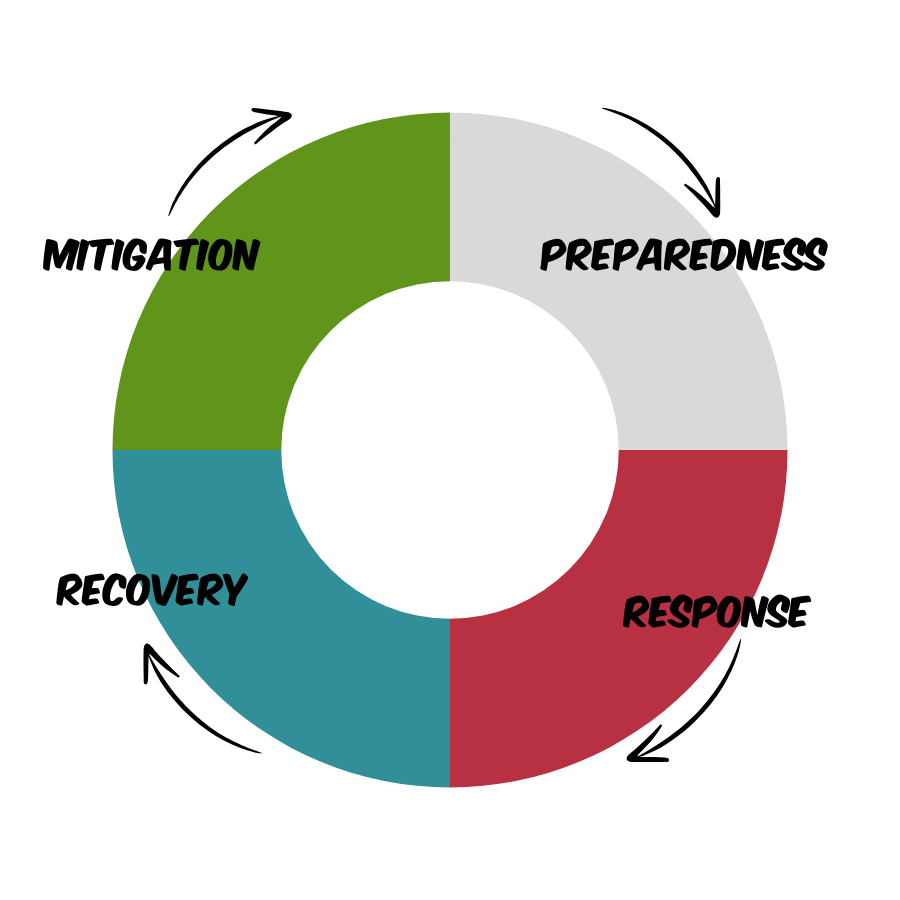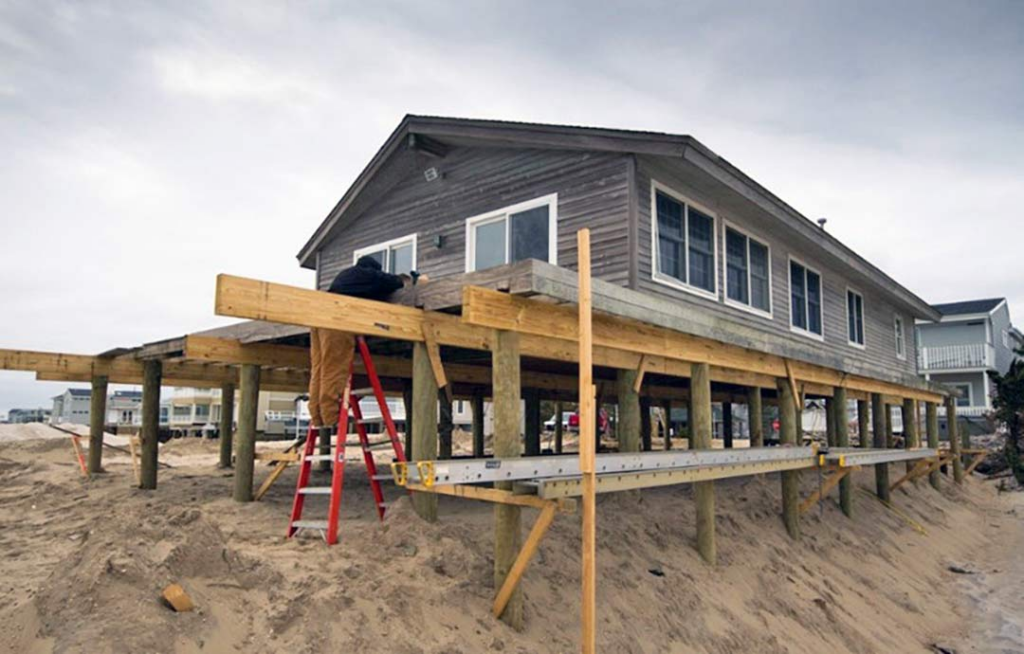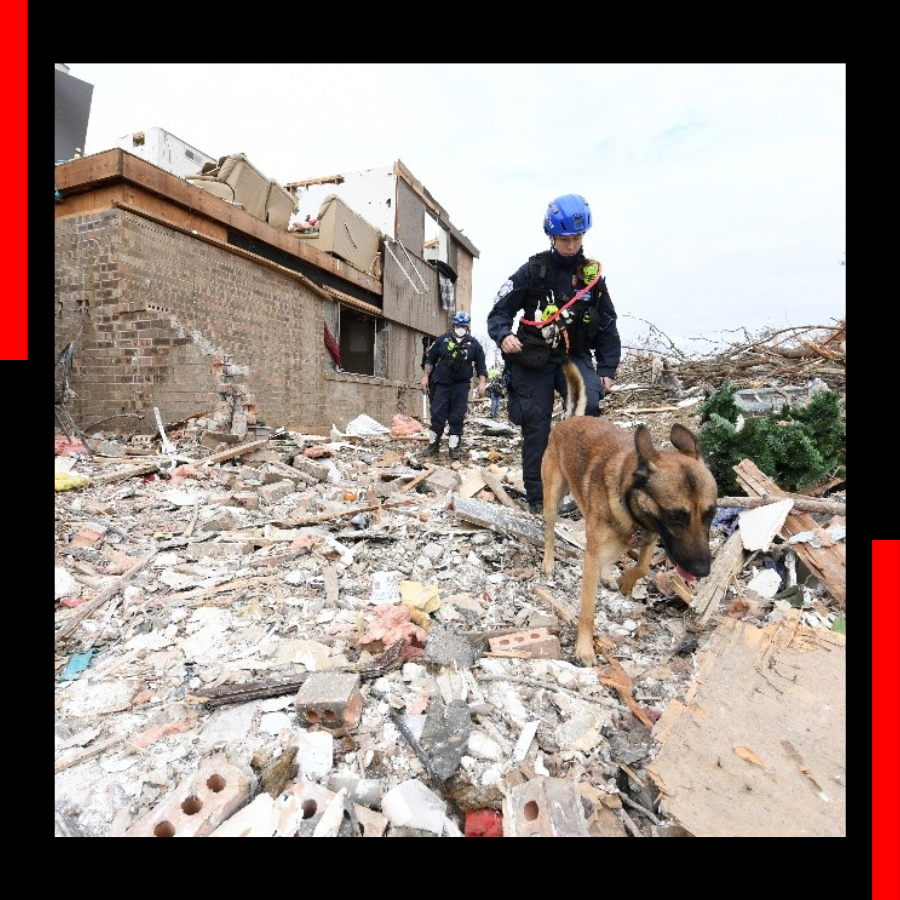In the southeast United States it is currently hurricane season or, as I like to call it, the time when personal politics and emergencies intersect in the most baffling of ways. You may have heard in a few places on this site that I dabble in emergency management (it’s my very own Harriet Jones introductions moment) and I recently found myself in a rural county doing some response work. This county leans heavily towards the MAGA Republican type of politicians and everywhere I went I saw flags that supported, cheered, and encouraged the former felon who is running for president again this election cycle. It was a place that I wouldn’t normally travel to, but that truly contained multitudes.
Emergency Management Primer
Emergency Management (EM) can mean a lot of things to different people. So I want to be clear how I’m using it in this context – it is the managerial function (by local, state, national, or tribal governments) charged with creating a framework and culture (this is very controversial in some circles) within which communities reduce their vulnerability to threats and/or hazards and cope with disasters. When you think about creating a framework, you have to think of the context in which disasters exist; so, at its most basic, there exist four phases of EM.

Preparedness
This is exactly what it sounds like. It’s the time between disasters where state, local, tribal, and national governments are putting information out there for people and doing things like drills we used to do in elementary school for tornadoes or earthquakes. This phase is where emergency managers try to get people to prepare for things that can’t be avoided or protected against.

Response
Disaster has struck! This can be anything like the Surfside Condominium Collapse in Miami, FL, the Maui Wildfires of 2023 which severely impacted Lahaina, HI, or COVID-19 which ravaged the entirety of the globe. A disaster does not have to be “natural” to require a response effort (and!! there’s no such thing as a natural disaster, but we’ll talk about that another day). A defining characteristic of the response phase is that businesses and people cannot operate normally and personal safety and wellbeing are at risk. This is the phase when you usually see a massive response from local, state, and federal entities including the moving of staff (like me!), resources (like line-men!), or supplies (like food!) to the affected area.

Recovery
Once the immediacy of the disasters start to subside, we slide into the recovery phase. This is the part that takes the longest and can vary wildly based on whether you’re a person who lives in an affluent city with tons of resources and funding to help you and the local economy get back on its feet OR someone who lives in a rural area or an area that’s been historically marginalized. Recovery includes a person rebuilding their home after it being destroyed by a wildfire, a city rebuilding roads that have been damaged due to a flood, or a state coordinating efforts to help impacted farmers replace lost livestock due a hurricane. Typically there are multiple agencies involved in the recovery phase at all levels of government. It’s a long slog and is usually the part that people like the least.

Mitigation
This is my favorite phase of EM if we’re being honest. This is the phase where we take stock of what happened during the disaster and think about how we can prevent a similar level of impact happening in the future. A great example of this is elevating a home, or creating a fire break between your house and your neighbors, or planting mangroves and other plants along the coasts. Not ever disaster impact can be mitigated against, so when we identify those areas we hop on back to preparedness.

Why Does Any of This Matter?
Omg great question! I give you this background so you can understand that personal politics can impact any and all of those phases of EM and can cause measurable consequences to an individual in some really in-your-face ways and in some places where you wouldn’t think about it but it’s there, happening in the background. As I did response work in the aforementioned rural county, I found proud and hardworking people who absolutely loved where they lived and the lives that they had built for themselves. However, one common sentiment I saw and heard was this notion that neither the local, state, or federal government were doing enough to help them in their time of need. “I don’t understand why this is so hard!” they would say, faces full of righteous indignation. I could only think of how they elected local, state, and federal government politicians who denied that climate change was real, believed in fiscal conservatism to the point of hobbling response agencies at all levels, and did not trust any level or type of government really. I just felt like I was in a real life version of “well, if it isn’t the consequences of my own actions” playing out over and over and over again.
Some Other Ways I Saw This Play Out
Interestingly, while they paradoxically eschewed the notion that the local/state/federal government should help, they also did not build a culture or community which utilized and nurtured mutual aid networks…at least in name. They would argue that they could pull themselves up by their bootstraps and recover and rebuild on their own dammit. They didn’t need “woke or snowflake” mutual aid networks! They could do fine all for themselves.
…but if they heard that Ms. Johnson down the way had a tree that was blocking her way out, they’d make sure it was cleared out for her. Or if they ran into Tim over there at the Home Depot, they knew he had a bad season on the water so they got picked up some tarps for him and conveniently “forgot” them at his house. It was absolutely WILD watching these folks who I built a real affinity for offer me their trucks to get through muddy and flooded roads because my sedan was too low to the ground, but curse where I worked and tell me that I was personally responsible for their lot in life and their inability to recover and claim that this country went to shit when the last election was stolen.
I was bewildered so. many. times. friends.
Closing Thoughts
As we wade deeper into the waters of this election cycle, I feel that what I really want to share is that even though people may share wildly different opinions from you, and hold beliefs dear that you abhor – sometimes they can surprise you. And if we aren’t engaging in and with people in a way that shows them we have more in common than we do differences – then what are we even doing as feminist book club members? As people who profess to be interested in viewing life in all of its intersecting identities and finding a path forward that helps lifts all of our boats? I keep on replaying Fannie Lou Hamer and Audre Lorde’s calls for solidarity and the idea that nobody is free until everyone is free…maybe this is the work that they meant? In any event, personal politics impact emergencies that you face and how you’re able to recover from them. So think about that when you’re headed to the booth, ok?


Yes! I struggle to find empathy for people who vote against their own interests repeatedly. However, I believe that’s the work, we meet each other where we are and try to hold onto our common humanity.